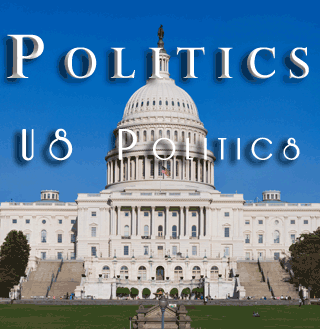Why voting our conscience is bad in the US
 In 2016 several million Democrats either stayed at home and didn’t vote, or voted for the Libertarian or Green Party presidential candidate, “voting their conscience.” However, in so doing, they contributed to the unconscionable: the Trump Presidency.
In 2016 several million Democrats either stayed at home and didn’t vote, or voted for the Libertarian or Green Party presidential candidate, “voting their conscience.” However, in so doing, they contributed to the unconscionable: the Trump Presidency.
Most of these Democrats were just mad because they thought Bernie Sanders had been eliminated in the primaries via an unethical manipulation of the debates by the party chair, Debbie Wasserman-Schultz. By interpreting their vote as a matter of conscience, they ignored the fact that anger can't solve a single problem, let alone the complex set of problems haunting the US government. Sensible voting has solved many.
In Michigan, which Trump won by only 11,000 out of 4.5 million votes, 67,000 people did not vote for either presidential candidate as a matter of conscience (or was it spite?) They did vote for the down-ticket candidates, so we know they voted. Trump carried the electoral college by only three states; Michigan was a typical one of them.
In this country we have a partial democracy in presidential races. We have interference by the electoral college and only two viable parties, Democrat and Republican. The Green and Libertarian parties are no more viable at the presidential level than the Communist and Socialist parties were up until the 1970s.
The UK has four viable parties, France has six, Germany has five, and Norway has seven. There are so many parties in these countries that often the party that wins elections must form coalitions with one or two of the losing parties in order to form a government. Europeans have more leeway to vote their consciences.
In this country, if we don't vote for our own party, we effectively give a half vote to the other party. I say that because when we throw away our vote, that is one vote the other party does not have to cover with a vote of its own.
We live in an imperfect world. No political party is perfect. We must choose between two imperfect parties based on the question, "Which is the better choice?" If we don't vote for what we think is the better choice, we help the worse.
Politics is the art of compromise, that means progress comes gradually. No political change can come about all at once. We can't expect perfect justice from either of the political parties immediately. We must be patient and create justice step by step, issue by issue.
I can see working conscientiously, playing conscientiously and, in general, behaving conscientiously, once in political office particularly. But we should never vote conscientiously; we should vote intelligently. We only have two choices in the US, better or worse. If we don't vote for one of these choices, we help the other.
Those who vote their conscience are usually angry with something. A friend of mine was told by his anger manager that anger lowers the IQ by 30 percent. When I told my friends this, they all agreed that this was a very conservative number.
Voting our conscience should not mean abandoning our intelligence. We should vote first and foremost intelligently. The results will always be conscionable. Intelligence solves every problem. Anger solves none.
(PennLive-Patriot News , July 17, 2019 )




